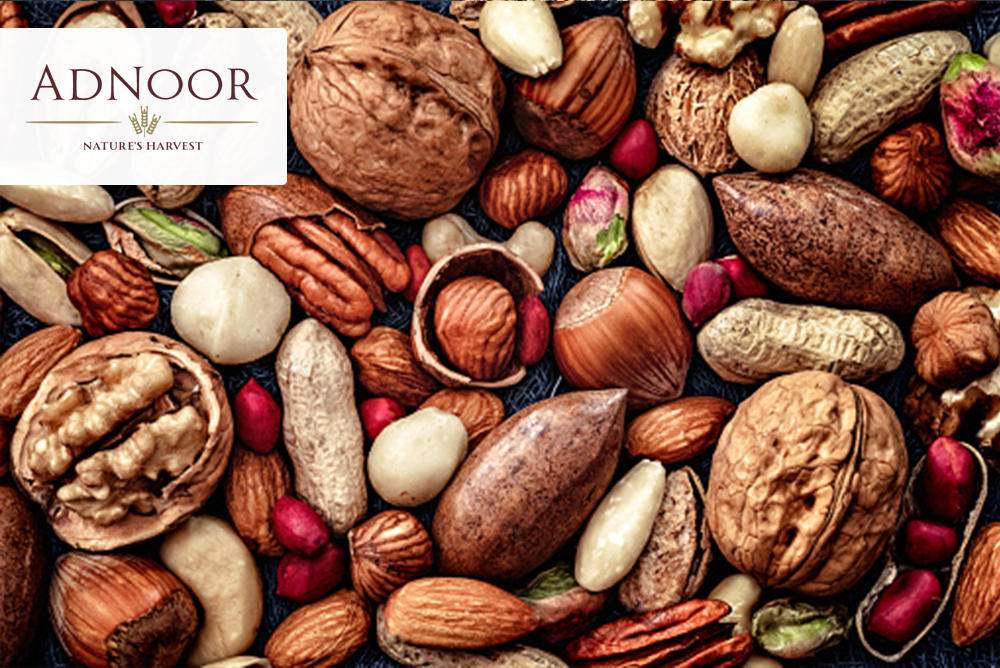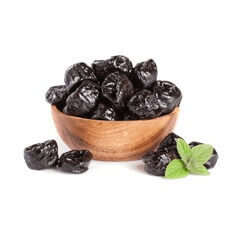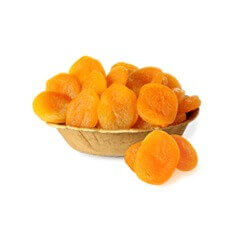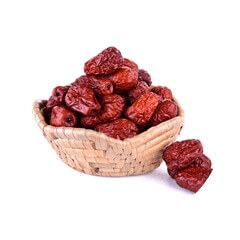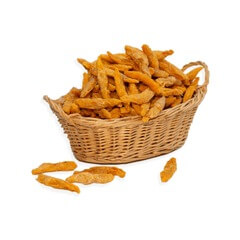Essential Things You Must Know About Nuts
Although the botanical definition of a nut is quite precise, its culinary use is rather wide, varied and participates in multiple recipes. Nevertheless, in fact, how to consider nuts? Are they, as their use in the kitchen suggests, both seeds, legumes and even dried fruits?
Technically nut foods consist of 2 parts. They are first coated with a hard, inedible outer shell, considered indehiscent, which means that their shell does not split open when mature. Inside it is the seed of the nut, the fruit or what can also be called the flesh of this rich food.
Is The Nut A Fruit?
Botanically, nuts are classified as fruits. However, their nutritional value, rich in dietary fibre, essential fatty acids and vitamins, differs greatly from the majority of fresh fruits.
These dried fruits, sources of protein, are indeed composed of a high lipid content which allows them to be grouped together within a single large family, that of the so-called oleaginous dried fruits. This adjective qualifies all the dried fruits capable of producing oil and therefore made up of fatty substances.
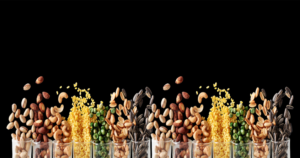
Among all the oilseeds and nuts, it is still possible to further compartmentalize a large number of foods categorized as nuts. Indeed, nuts are not only the fruits of the walnut tree!
Contrary to popular belief, walnut kernels, almonds, cashews, Brazil nuts, walnuts, pecans, macadamia nuts, pistachios, and pine nuts are actually seeds drupes (the drupe is a fleshy fruit with a stone and containing a single seed) and not a real nut.
The only nuts that meet all the botanical criteria are chestnuts, hazelnuts or even acorns. The peanuts in your appetizers are legumes. It is mainly their high protein and lipid nutritional profile that makes them similar to other tree nuts. The benefits of nuts are important; one can know everything by reading their composition.
What Do Nuts Contain?
Nuts are an excellent source of protein, which is vegetables too! Nuts are also made up of antioxidants and macronutrients involved in the process of slowing down the aging of cells. Data indicates that nuts are additionally rich in essential vitamins and minerals. Among which are vitamin E, copper, magnesium and selenium.

Finally, dried fruits can also provide you with all the fibre you need, as well as essential fatty acids, including omega 3, which contribute to the proper general functioning of your body.
Nutritional Properties of Nuts
All nuts combined contain, on average, 10 to 25 g of protein per 100 g. They are all sources of vitamins B1, B2, and E, calcium, magnesium, potassium, phosphorus, zinc, selenium and iron. Rich in iron but also in lipids, they mainly contain a large proportion of mono and polyunsaturated fats and are low in saturated fats.
Nuts remain dense foods and range from 570 kcal for the least caloric (pistachio) to 726 kcal for the most caloric (macadamia nut).
Why Eat Nuts?
There are wide varieties of tree nuts all over the world. These nuts are loaded with nutritious minerals like vitamins, calories, magnesium, calcium, sugar, fibre, carbohydrates, iron, unsaturated fats and much more. The nut, whatever its type, is an antioxidant bomb and food rich in fatty acids.
Nuts to Stay Healthy
Nuts have become popular around the world, and they are now more easily found even in remote countries and islands. Although reputed to be fatty, these are truly very good fats without the negative effects. These nuts are tasty and convenient and can be incorporated into any diet, whether vegan or keto. Although nuts are high in fat and especially good fatty acids, the other vitamins and nutrients they contain are beneficial for cardiovascular health and many other chronic diseases. Tree nuts are actually seed grains that are widely used in cooking and are also eaten as snacks.

Nuts are high in calories and monounsaturated fat. Most shelled oilseeds available on the market are unshelled and ready to eat. This makes the process quite simple and quick. People who consume nuts and pine nuts tend to have lower body weight and controlled body mass index.
Nuts will definitely be a good source of healthy fats, antioxidants, fibre and more to boost your body, and each type of tree nut has unique health benefits. There are many ways to use nuts and incorporate them into your diet. You can either add a few grams to your dried fruit mix or eat them as a snack. You can also use them to make nut milk, nut butter like peanut butter, and nut oil, or finally, sprinkle them in your salad.
Limit The Risk Of Disease.
Seeds and nuts are full of health benefits thanks to their antioxidant polyphenolic flavonoids like resveratrol, carotenes, lutein, cryptoxanthin, etc. These compounds protect against diseases like degenerative nerve diseases, heart disease, cancers, viral infections, fungal infections, Alzheimer’s disease, etc. Consuming nuts helps control blood pressure, improve blood vessel efficiency, maintain low cholesterol, improve vitamin and mineral intake, etc.
For plant-based protein intake, nuts are the best source in the world. We have found that eating tree nuts in the daily diet can reduce the risk of inflammation and many chronic diseases.
There are several kinds of nuts in the world, and the nutritional information of all these nuts is different depending on the types.
How Many Nuts to Eat Per Day?
Maintaining good health by choosing to maintain a healthy daily diet throughout our lives is very important. Eating nuts regularly and somehow incorporating them into your daily diet can do wonders for your future health.
Many people wonder how often they can eat nuts. Should we limit our consumption of nuts per day, per week, or adjust it according to the time of day?
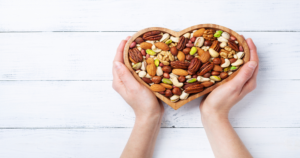
To get the best quality basmati rice, nuts, seeds, and dried fruits, visit the ADNOOR website. We have been the importers, exporters, wholesalers, distributors, and co-packers of various nuts and grains in Canada for the last 25 years. For more details, visit our website.

